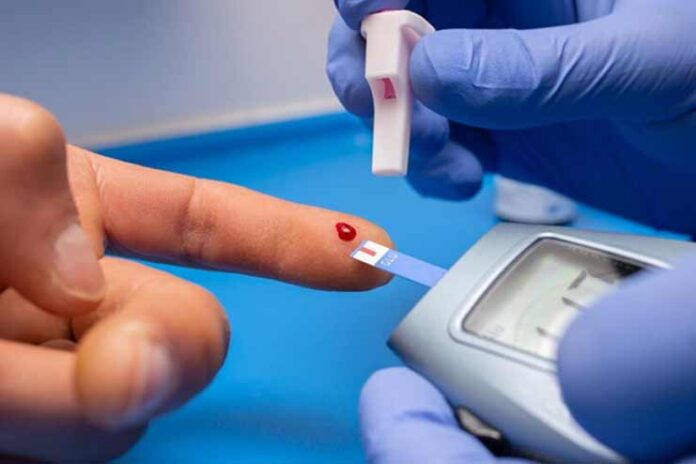Affiliate Disclaimer
Some links in this article are affiliate links. We may earn a small commission if you make a purchase through these links, at no extra cost to you. We only recommend products we find useful to our readersOne of the most common misconceptions is that blood sugar spikes are only harmful to diabetes patients. Eating foods that induce persistent spikes in blood sugar levels can lead to insulin resistance, which, when left untreated, can lead to diabetes in the long term.
So, if you have been looking for ways to prevent blood sugar spikes, we have some effective strategies to share with you.
What Are Blood Sugar Spikes?
A blood sugar spike occurs when glucose levels in the bloodstream build up beyond normal levels. For someone suffering from diabetes, this is a common phenomenon due to the cells’ inability to properly metabolize the glucose in the bloodstream.
Having glucose in the bloodstream is necessary for the seamless functioning of the muscles, organs, and even the brain. The only problem with glucose is that it needs to enter the cells in order to function correctly.
What Causes Blood Sugar Spikes?

Blood sugar spikes can occur for a number of reasons. Some common causes of blood sugar spikes include:
- Improper insulin dosage
- Insulin not working properly
- Missing doses of oral diabetes medication
- Poor diet, especially those high in sugar and refined carbs
- Sedentary lifestyle
- Taking certain medications, such as steroids
- Persistent physical and emotional stress
Symptoms of Blood Sugar Spikes

Some common symptoms of blood sugar spikes include:
- Frequent urination
- Tiredness and fatigue
- Feeling parched
- Headaches
- Blurred vision and confusion
How To Prevent Blood Sugar Spikes?
If you’re looking for effective strategies, we have some tips and tricks to help you prevent blood sugar spikes.
1. Opt for a Low-Carb Diet

The carbohydrates we consume are often responsible for spikes in blood glucose levels. Carbs are easily and quickly broken down into simpler forms, which enter the bloodstream and cause these spikes. When carbs are broken down into simple sugars, it triggers the release of insulin into the bloodstream.
Consuming a low-carb diet (R) (R) has been associated with better management of both glucose and insulin levels in the body.
If you’re wondering how to reduce carb intake, try this article for some helpful hints.
2. Switch to Nuts
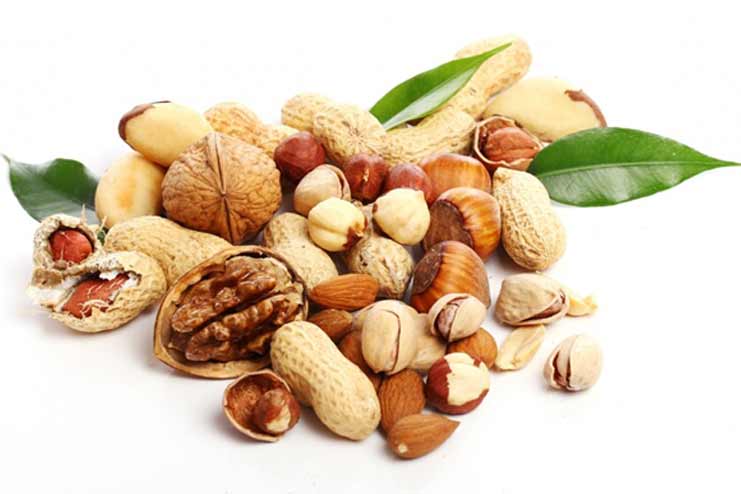
Consuming healthy fats is one of the best ways to prevent blood sugar spikes at night. If you’re looking for ways to manage proper blood glucose levels, make healthier choices when it comes to snacking.
The healthy fats in nuts help slow down the metabolism and absorption of consumed sugar. The only precaution is to ensure you don’t eat too many in one sitting, as nuts are also high in calories.
3. Walk for 30 Minutes After a Meal

Taking a 30-minute walk after a meal can help manage blood sugar levels. You needn’t walk vigorously or run; just walking down the road or even inside the house for 20-30 minutes can make a big difference.
A post-meal walk burns extra calories and keeps the blood glucose level under control. According to studies (R), walking after a meal helps manage type-1 and type-2 diabetes.
4. Reduce Refined Carbs
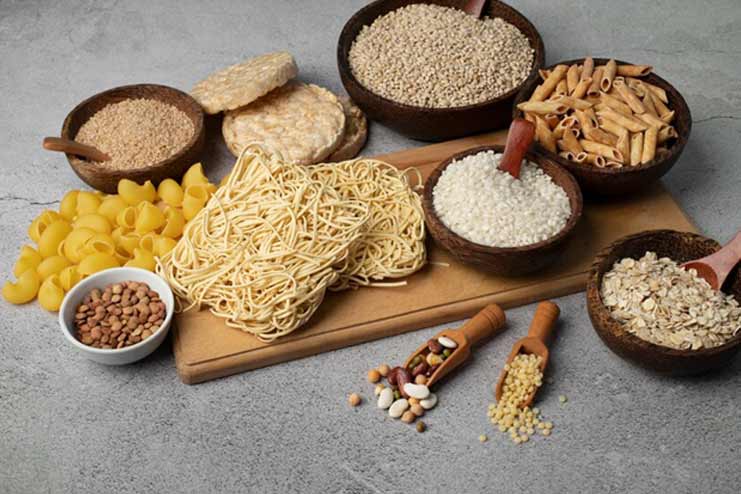
Another factor in reducing blood sugar spikes is taking charge of your refined carb intake from processed grains. Due to heavy processing, refined grains lack beneficial nutrients, vitamins, minerals, and fiber. They are high on the glycemic index because they produce spikes in blood sugar levels.
A study (R) with 91,000 women consuming refined carbs showed an increased risk of type-2 diabetes. Cut down refined carbs and instead switch to whole-grain foods.
5. Eat More Vegetables

Vegetables are one of the richest sources of nutrition and should be part of your daily diet. They contain various minerals, vitamins, and a good amount of fiber, which have proven advantages in curbing blood sugar spikes.
Choose non-starchy, high-fiber vegetables like broccoli, cucumber, and carrots. They will provide the necessary nutrients needed to maintain healthy blood sugar levels.
6. Maintain a Steady Weight
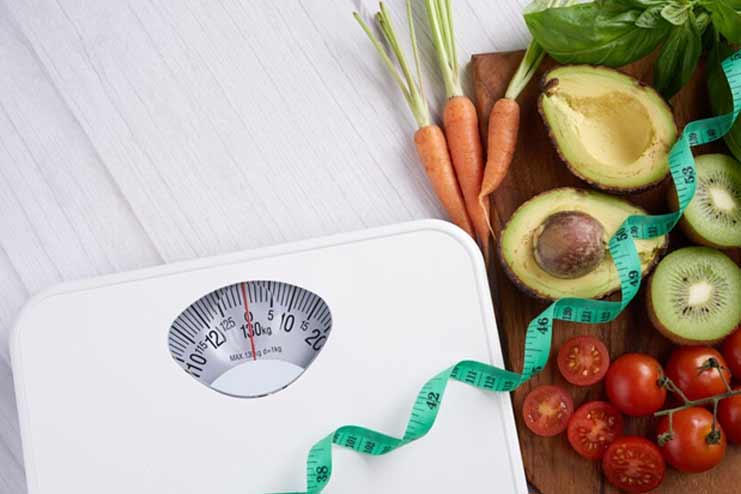
The other aspect of regulating blood sugar is maintaining a balanced weight and avoiding obesity. Obesity reduces the human body’s capacity to use insulin properly, leading to incapacity in managing blood sugar levels.
According to various studies, obesity is among the main risk factors for type-2 diabetes, and weight loss has proved to be good in diabetes management, evidenced by multiple studies (R) (R).
7. Consume More Cinnamon

Due to its effective blood sugar-reducing (R) properties, adding cinnamon to your diet is advantageous in managing and controlling blood sugar levels. Cinnamon helps improve insulin secretion from the pancreas, further enhancing overall blood sugar levels.
8. Exercise More

If you are wondering how or why exercises help reduce spikes in blood sugar, it’s because exercising increases the cells’ insulin sensitivity. Exercise helps muscles absorb excess sugar from the bloodstream, keeping blood glucose levels normal.
You do not have to go for high-intensity workouts; medium-intensity exercise can be quite effective, too. A study (R) conducted on adults revealed that proper workouts lead to better maintenance of blood sugar levels.
9. Add Apple Cider Vinegar To Your Diet

Another basic yet effective way to prevent blood sugar spikes is by including apple cider vinegar in your diet. Studies (R) have found that apple cider vinegar can slow down the absorption of sugar into the bloodstream.
Consuming apple cider vinegar tonic has been shown to be effective in managing fasting blood glucose levels. Even taking a tablespoon with a meal can help manage the risks associated with diabetes.
10. Bulk Up On The Fiber
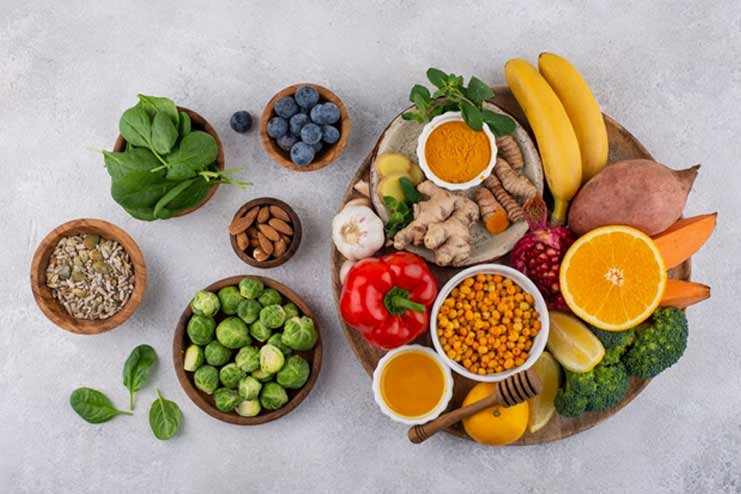
Both soluble and insoluble fiber are beneficial. Soluble fiber has proven to be highly helpful in minimizing blood sugar spikes after eating. In addition, it makes you feel full sooner and leads to consuming less food.
11. Drink More Water

Dehydration is believed to be one of the reasons for the sudden increase in blood sugar levels. When dehydrated, the human body sends an immediate signal to the pituitary gland to secrete vasopressin. From there, the kidneys are directed to reabsorb more water to lower the excretion of excess glucose via urination. The amount of water each person needs is different, but drinking at least eight glasses of water daily is generally recommended.
12. Plan Ahead of Time
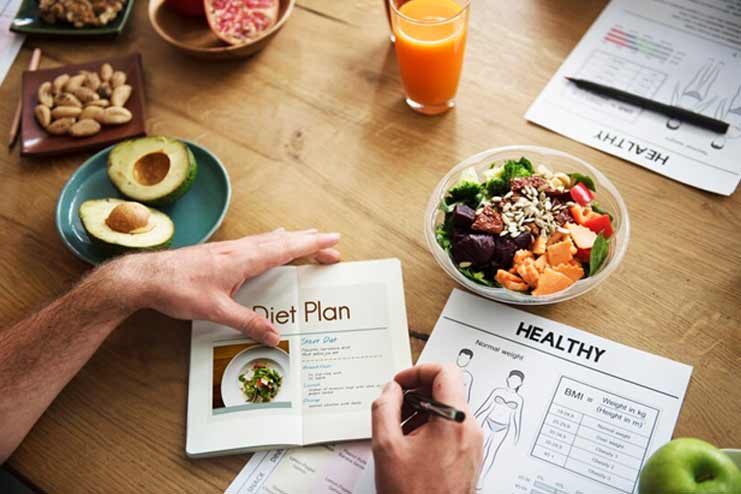
If you have experienced blood sugar spikes, it is best to plan ahead. Having a basic outline of your past experiences makes it easier to be ready for potential consequences. Carrying some healthy snacks can be helpful in case of sudden changes in blood sugar levels.
13. Include More Magnesium

Another factor that helps prevent blood sugar spikes is including more magnesium in your diet. A study (R) found that supplementing with 600 mg of magnesium daily increased insulin sensitivity. It is important to be cautious with the amount you consume. Avoid excessive intake to prevent any potential side effects and issues.
14. Add Fenugreek To Your Diet

Another effective remedy for managing blood sugar spikes is adding fenugreek to your diet. Fenugreek is rich in soluble fibers, which help slow down glucose absorption and prevent sudden spikes. A study (R) involving 20 participants found that consuming powdered fenugreek leaves with water before meals significantly improved blood sugar management.
Conclusion
Controlling blood sugar spikes is a significant part of staying healthy, especially when you have diabetes or are at risk of getting it. By incorporating a few simple methods into daily life, you can keep your blood sugar in check and lower your risk of complications.
Maintaining your blood sugar at a reasonable level includes adopting a low-carb diet, consuming healthy fats from nuts, walking after meals, and avoiding refined carbohydrates. Adding more vegetables, maintaining body weight, and adding cinnamon and magnesium to your diet can further enhance your efforts.
In addition, regular activity, use of apple cider vinegar (ACV), higher intake of fiber, ample water intake, advance planning, and the use of fenugreek can help you stabilize your blood sugar levels.
All of these have different benefits and can be tailored to your needs. As you embrace these practices, you integrate a solution to keep blood sugar spikes under control.
-
Oct 2019Written by Lakshmi Gayatri
-
Oct 2024Edited by Ankita
References
- https://www.ncbi.nlm.nih.gov/pubmed/23364002
- https://www.ncbi.nlm.nih.gov/pubmed/27472929
- http://care.diabetesjournals.org/content/28/6/1524
- https://www.ncbi.nlm.nih.gov/pubmed/15277155
- https://www.ncbi.nlm.nih.gov/pubmed/10372237
- https://www.ncbi.nlm.nih.gov/pmc/articles/PMC1370926
- http://www.ncbi.nlm.nih.gov/pmc/articles/PMC3767714
- https://www.ncbi.nlm.nih.gov/pubmed/28119617
- http://www.ncbi.nlm.nih.gov/pmc/articles/PMC3714056
- https://www.ncbi.nlm.nih.gov/pubmed/20531272
- https://www.ncbi.nlm.nih.gov/pubmed/11370345
In this Article













